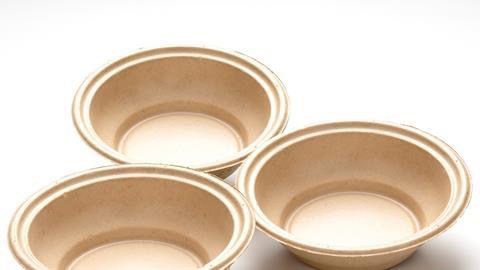ThePackHub’s latest report tackles packaging innovation trends with a global view. The recently published Global Packaging Trends Compendium 2021 details more than 550 packaging innovations and is grouped into nine trend sections. The first to be tackled in the report is ‘Naturally Done’. Paul Jenkins, Managing Director, ThePackHub, looks at some of the highlights.
The Naturally Done trend covers the drive for the use of more natural substrates. These new material developments aim to find potential alternatives to plastic or discover ways to utilize naturally-based by-products for packaging use.
There are many compostable, biodegradable and bio-based packaging initiatives coming to market worldwide. Many of the initiatives listed are still in development and not yet on supermarket shelves. The R&D projects may be two or three years away or may not even reach the end consumer due to lack of funding or not finding a workable commercial solution. Many bio-based materials are being used. Sugar cane continues to be the most popular, but we’re also tracking tomato fibre, whey, chitin, bamboo, mushroom, cacao beans, straw, seaweed, pasta waste and many more.
Without established industrial composting systems in place in most markets, the compostable sector is at a turning point. Mass adoption will only really occur when the infrastructure to deal with the packaging is fully in place. Home compostability is still relatively niche with most consumers not having the space or the will to participate. There are also concerns about compostable and biodegradable packaging contaminating existing recycling waste streams.
Cost may also be a significant barrier, with bio-based packaging often costing a lot more to supply than the price of conventional plastic-based products. It requires a substantial investment for any brand or retailer to employ. We have yet to see many larger company examples introduced. The majority are small challenger brands and startups looking to stand out in the market for what is perceived as a more sustainable point of difference.
The latest in bio-based packaging innovation
Typical of the innovations featured is Dual-ovenable moulded fibre bowls made from sugarcane. Health brand Primal Kitchen is reported to be the first to commercialize a new, dual-ovenable moulded fibre tray based on US-grown sugarcane. Now part of Kraft Heinz, Primal Kitchen’s new line of bowls and skillets is available through retailers such as Thrive Market, Walmart, Whole Foods and Wegmans. The dual-ovenable bowls from Sonoco-owned Natrellis Packaging are made using raw materials sourced from within the US.
Another use of by-products is discarded palm fibres converted into compostable food packaging material. A UAE startup is turning unwanted palm fibres into compostable food packaging materials. The country has a widely abundant local palm leaf resource. Palm Co. has developed a process through which fibre is extracted from the leaves of palm trees. Water and latex is mixed into the fibres where it is then dried and moulded and coated with latex into shape. Latex is a naturally occurring resource that does not affect compostability. The material is estimated to compost in around 90 days.
Elsewhere, Estonian start-up Woola produces compostable bubble wrap from leftover sheep wool – an abundant resources that is usually thrown away. As the quality is not sufficient for fabric production, Woola claims that 90% of sheep wool equating to 153 tonnes is thrown away in Estonia every year. Wool is a natural resource that regenerates every year and it is effectively available for free. Sheep wool’s functional properties ensure that it is shockproof and has thermal insulation (for both heat and cold). It is also able to lock in moisture (up to 37% of its own mass).
US beauty brand Each & Every is making the switch from plastic with the launch of a new sugarcane pack for its line of natural deodorants. The main result of the activity sees a reduction in the company’s carbon footprint for its packaging. Each & Every is introducing sugarcane packaging made from a 100% plant-based and renewable resource, which it says is carbon negative. Sugarcane actually absorbs CO2 as it grows, removing it from the atmosphere. The sugarcane is fermented, distilled and dehydrated to convert it into a packaging material. The packaging can be recycled through kerbside collection.
More to come
The Naturally Done trend is anticipated to remain buoyant beyond 2021. It is likely that brands and retailers will continue to develop ‘natural’ solutions to meet their various 2025 deadlines.
The 2021 Global Packaging Trends Compendium comprises nine new packaging trends. It features a comprehensive assessment of more than 550 packaging innovations. It also includes interviews with 16 industry experts from around the world, featuring packaging experts from the likes of Mars Wrigley, Mondelez, Ocado, as well as Tim Sykes, Brand Director at Packaging Europe.
More information here: https://www.thepackhub.com/services/global-packaging-trends-compendium-2021/














